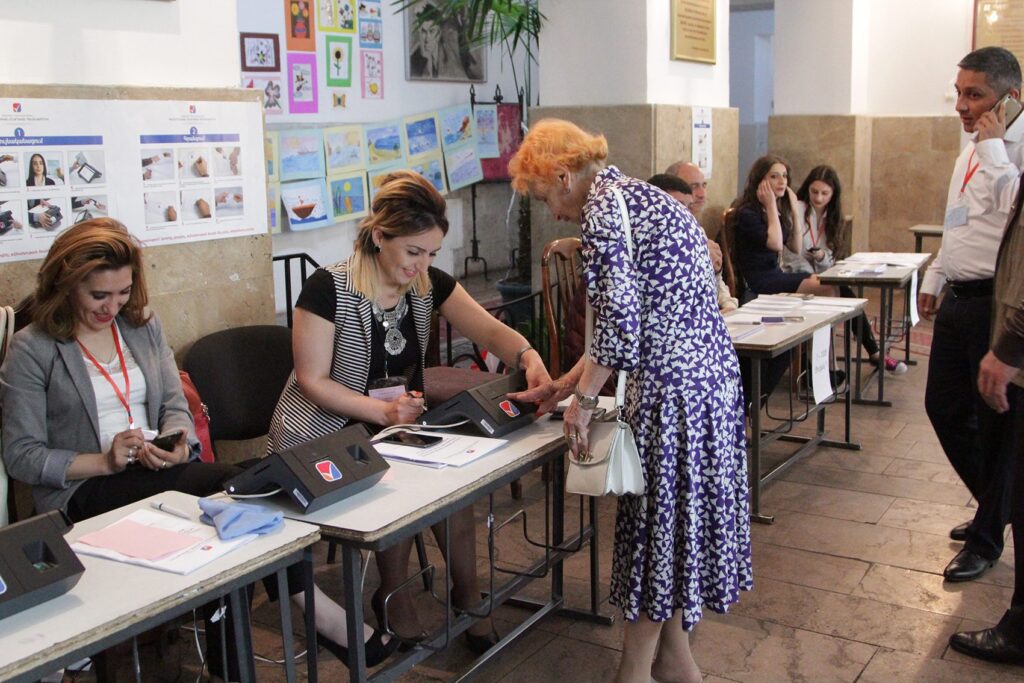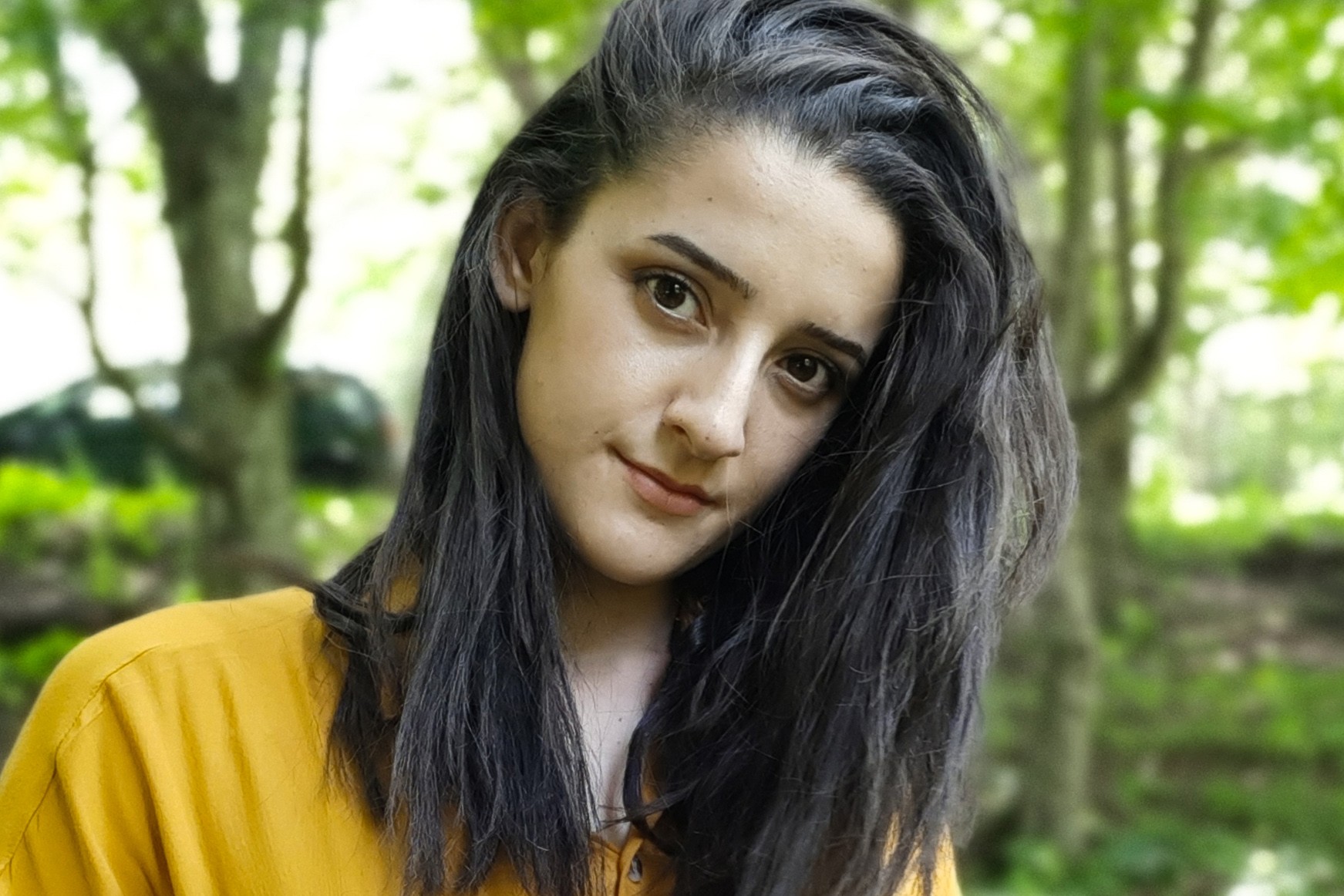Despite a large number of parties running for Armenia’s upcoming parliamentary elections, the polls currently suggest a two-way race between Pashinyan and Kocharyan. But beyond the party leaders, who is running in each party’s list?
Even though the reputation and popularity of Armenia’s government has taken a nosedive following the country’s defeat in the Second Nagorno-Karabakh war and the failure in governance in its aftermath, the ruling Civil Contract Party is still likely to win the most votes, public opinion polls forecast.
Second place is expected to go to Robert Kocharyan’s Armenia Alliance, which includes the Armenian Revolutionary Federation (ARF), AKA ‘Dashanktsutyun’, and the Rebirth Armenia party headed by former Syunik governor Vahe Hakobyan.
Coming third, and according to polls the only other party set to win seats, is Prosperous Armenia, headed by oligarch Gagik Tsarukyan, which is currently the largest opposition force in Parliament.
According to the Central Electoral Committee, 22 parties and four electoral blocs are running for seats in Armenia’s Parliament. Among them are all of the country’s former ruling parties, current opposition forces, some minor parties, and a number of political groups formed after the Second Nagorno-Karabakh War.
Return of the oligarchs?
The ruling My Step Party’s leader is the acting Prime Minister Nikol Pashinyan. Both deputy prime ministers — Tigran Avinyan and Mher Grigoryan — were not included in the slate.
In this election, the ruling party has two major businesspeople on its electoral list; both Khachatur Sukiassian and Gurgen Arsenian have supported Pashinyan since the 2018 Velvet Revolution.
After coming to power, Pashinyan repeatedly promised to separate business from politics. Pashinyan’s broken promise raised criticism among some of his supporters.
Responding to critics, Pashinyan’s brother-in-law and senior Civil Contract member Hrachya Hakobian denied contradictions between Pashinyan’s pledges and the businesspeople’s inclusion on the party’s electoral list. He said it was not clear whether they should be regarded as businesspeople or politicians.
‘Khachatur Sukiasian has engaged in politics for many years,’ Hakobian told RFE/RL. ‘He was even persecuted for his political views during the 2008 post-election processes’.
Sukiassian fled Armenia in 2008 after backing Levon Ter-Petrosyan in elections and the protests in its aftermath. After returning, Sukiassian wasn’t seen as an active politician but was a successful businessperson, allegedly engaging in some illegal activities.
Gurgen Arsenian, another successful businessperson involved in real estate and other businesses, was an MP leading a minor party under Kocharyan’s government in the 2000s. He was also an MP in the early 2010s including as a member of Gagik Tsarukyan’s Prosperous Armenia faction.
Prosperous Armenia is running in the 2021 elections alone. Prior to the polls, one of the party’s leading figures and its general secretary, Naira Zohrabyan, quit the party and will not be participating in the elections.
Several other prominent members, such as the current deputy Speaker of Parliament Vahe Enfiajian, were also not included in the party list. According to Arman Abovyan, a leading member of the party, this represented a ‘change of generations’ and had no political reasons behind it. He also stated that Prosperous Armenia was not considering forming a coalition with any other political group.
The Bright Armenia party — the third faction currently in the Parliament, is participating in the elections alone, and has ruled out any coalition with either Pashinyan or Kocharyan. Their election slogan says positions the party as an alternative option for voters.
The most discussed political comeback after Kocharyan’s was the return of Armenia’s first President, Levon Ter-Petrosyan. Ter-Petrosyan is leading the Armenian National Congress as its candidate for Prime Minister.
Third President Serzh Sargsyan’s Republican Party is also participating in the elections in the ‘I Have Honour’ alliance with the Homeland party. The head of the latter party is former National Security chief Artur Vanetsyan, who served under the Pashinyan government from 2018–2019.
Vanetsyan is leading the electoral list of the bloc; the second on the list is the ex-Mayor of Yerevan Taron Margaryan. President Serzh Sargsyan and his close allies Armen Ashotyan and Eduard Sharmazanov are not on the bloc’s list but have been active in the campaign.
Against Pashinyan and ‘for security’
Border tensions between Armenia and Azerbaijan, including negotiations over a vague border agreement and recent clashes, have intensified opposition to Pashinyan.
Vazgen Manukyan, the leader of the opposition Homeland Salvation Movement, issued a statement on 27 May calling for all political parties to declare that after coming to power, ՛all written, oral, known and secret agreements between Pashinyan and Aliyev regarding Armenia’s security and territories will be considered illegal’.
Since there is an apparent consensus between most opposition parties on the idea of ousting Pashinyan, opposition parties are competing with each other to stand out.
Kocharyan earlier stated that he was ready to cooperate with any other force to oust Pashinyan, by without necessarily allying with them.
Kocharyan’s statement came after Levon Ter-Petrosyan made public an offer he made to unite the three former leaders of the country under one banner.
According to Ter-Petrosyan, third president Serzh Sargsyan also rejected an offer to form a two-party bloc between them. However, the I have honour alliance has stated that they were ready to form a coalition with Kocharyan’s bloc.
The possibility of electoral fraud during the vote is being widely discussed by the public and political parties.
Pashinyan has promised to hold fair and transparent elections, claiming that neither his team nor the public would allow the falsification of the elections ‘even if they want to do so’.
Meanwhile, President Kocharyan has claimed that Pashinyan is not even capable of rigging the elections, promising to organise and lead post-election protests if they did attempt to.
‘If the government tries to use disproportionate administrative resources if the government tries to falsify the elections in different ways, then there will be post-election processes that could have unpredictable consequences’, he stated. ‘So, in this situation, everyone should realise that.’
In order to ‘prevent electoral fraud’ Armenia’s parliament adopted amendments to the electoral code in May, changing the electoral system and introducing tougher penalties for electoral fraud.
The amendments criminalised bribing voters, use of administrative resources or charity to gain votes, and a number of other actions, in some cases with penalties of up to six years in prison.




 31 May 2021
31 May 2021




